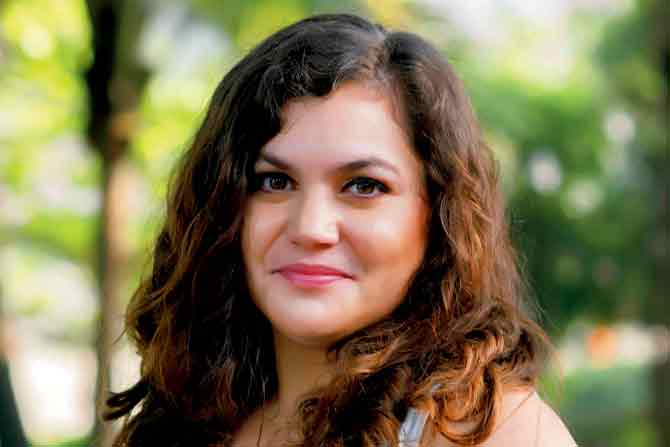
Leah Franqui's book is based in Bandra Reclamation. Pic/Rane Ashish
The first sentence of any written piece really gets you thinking. For a millisecond, it lurks around in your head and forces you to ask — 'Do I really even want to read the second sentence?' Leah Franqui, in her latest book Mother Land (William Morrow, HarperCollins) seamlessly encapsulates the plot in the first sentence: "When her mother-in-law came to ruin her life, Rachel Meyer arrived at a conclusion that she would never, afterward, be swayed from: namely, that whole thing that was entirely her own fault."
Rachel Meyer, here, is an American who has moved to Mumbai with her husband Dhruv, who hails from Kolkata. She has never visited India before and now, has to make it her home with an apartment in Bandra Reclamation. It is a big change and just as Meyer has begun to process and grasp it, her mother-in-law, Swati, shows up at the doorstep unannounced, separated from her husband and here to live with the couple forever. But this is not the television soap opera you'd imagine it to be. It's as much about two women building a home as much as trying to understand, from each other, what makes it one.
ADVERTISEMENT
Our first question to Franqui, in an email interview, is about that first sentence. "It's funny you ask because this is something that hasn't changed much over the course of drafting this novel, while so many other things about this book have," she shares.
The book is rooted in the author's life but each character, she says, is an invention. Franqui was born in Philadelphia, pursued her education at Yale and NYU-Tisch, where she met her now-husband, who was also born in Kolkata, and moved to Santacruz, Mumbai in 2015. She began writing Mother Land, which is available for pre-orders online in India, in 2017, and wrote the second draft at a writer's residency at Palazzo Stabile, Italy.
The 33-year-old tells us that the novel stemmed from her anxiety about moving to India and concerns that it would put a strain on her marriage, as well as the real experience of moving to the country, which has been both edifying and challenging. So, while Meyer's character reflects her struggle to understand and adapt to the world around her, Swati's was crafted out of Franqui's interest in the "generational gaps and tensions that score women's lives in India today." Dhruv, on the other hand, is the biggest leap from reality, according to the writer. "He's nothing like my husband, and we are nothing like Rachel and Dhruv as a married couple. We talk about everything, we fight, we share some similar obsessions, and we are both pretty devoted to communication and clarity. Moving here has been challenging to our relationship; my fears came true in a way, but it's made us closer and better able to communicate and face change together," she says.

Leah Franqui
Mother Land first released in the US last month, and so its primary readers are Americans. But the white gaze and exoticism, that foreign accounts of India are ridden with, are what Franqui has tried to stray away from. The book also got a sensitivity read before it went to print. "I think that there is a lot made and said about India both in the country and outside of it that goes for the extremes," she says, elucidating, "Some works cover the colonial fantasy or a Jungle Book-inspired romance, and some cover the depths of problems in India, sometimes realistically, or otherwise, as a kind of torture porn. Hopefully, I've written something that isn't either of those things — something that reflects my own experience in Mumbai, a place of extreme wealth and poverty, and everything in between."
Friends and family, Franqui shares, have joked that the novel should've been called India for Beginners (her first book was titled America for Beginners). But Mother Land, as a title, for her, is everything. "When I heard the Bengali word for country, 'homeland', I couldn't get it out of my head. I'd always heard the word as fatherland — masculine, patriarchal. In Bengali, 'matribhoomi', means homeland or motherland.
That just made all the sense in the world to me. We come from our mothers, don't we?"
Catch up on all the latest Mumbai news, crime news, current affairs, and a complete guide from food to things to do and events across Mumbai. Also download the new mid-day Android and iOS apps to get latest updates.
Mid-Day is now on Telegram. Click here to join our channel (@middayinfomedialtd) and stay updated with the latest news
 Subscribe today by clicking the link and stay updated with the latest news!" Click here!
Subscribe today by clicking the link and stay updated with the latest news!" Click here!







